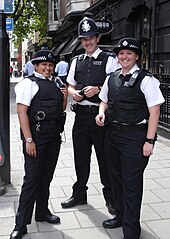The verb to know and the associated noun knowledge are both concerned with the possession of information, awareness, familiarity, recognition and the like.
Over the centuries this has resulted in some very specialised uses. One of these is the phrase carnal knowledge, described by Wikipedia as “an archaic or legal euphemism for sexual intercourse“. Thus the verb to know can take on sexual connotations. The most notable example of this usage is in the King James Bible in Luke 1. This is where Mary receives news from the angel Gabriel that she is to be mother of the son of God. When so enlightened, she replies as follows in verse 34, implying she is either unmarried, a virgin, or both:
Then said Mary unto the angel, How shall this be, seeing I know not a man?

What are you writing about here then?
Or at least it did until this week.
Yesterday’s Bristol Live/Post carried a report of an Avon & Somerset Police Question Time on 14th October featuring Chief Constable Sarah Crew and Clare Moody, the elected Police & Crime Commissioner.
At one stage the discussion turned to human trafficking and modern slavery. The Chief Constable remarked that places of employment where trafficking was suspected included car washes, nail bars, care homes and agriculture.
To this Ms Moody added:
Victims of modern slavery and human trafficking are some of the most vulnerable people in our society.
In order to be able to intervene in this criminality you have to be able to identify it’s happening. Your own threat assessment estimates that only ten per cent of the victims of this crime are known to Avon & Somerset Police.
Is Ms Moody implying that 10 per cent of slavery and trafficking victims have a criminal record or have been previously arrested by Avon & Somerset’s finest? Or is she unaware of the special meaning of known to police?
Your ‘umble scribe suspects the latter.
Is known to police on the route to becoming another archaic or legal euphemism? Add your thoughts in the comments below.